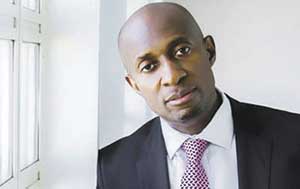Airline Operators of Nigeria (AON) Chairman, Nogie Meggison, has called on the government to implement policies to solve the problems facing the aviation industry in the country.
He listed, among others, a lack of aircraft maintenance hangar, exclusion of domestic airlines from direct bid for foreign exchange (forex) by the Central Bank of Nigeria (CBN), high aviation fuel price, multiple taxation, poor service delivery by agencies, no single digit loan by financial institutions, and unemployment among aviation professionals.
Meggison, also grand patron of Nigerian Professional Pilots (NPP), urged Abuja to remove value added tax (VAT) on air transportation paid by domestic carriers while foreign airlines operating in Nigeria are exempted.
About 200 pilots are unemployed at the moment, whose number would soon be swelled by over 100 student pilots sent to Jordan by the Kano State government who would graduate later this year.
This is in addition to 52 youths trained under the Amnesty Programme, 100 students graduating from the Nigerian College of Aviation Technology (NCAT), Zaria and 40 others from the International Aviation College (IAC), Ilorin.
Meggison said the situation is a disincentive to the development of aviation, and something should be done about it fast.
According to him, over 400 Nigerian licensed aircraft engineers are also out of job, and the government should implement employment policies that would ensure aviation professionals are engaged by both local and foreign carriers operating in the country.
Some domestic carriers have done well and are engaging pilots, he added, but there is room for improvement, as the government has to check the influx of foreign pilots and engineers by foreign carriers.
Over 1,000 foreign pilots and aircraft engineers are employed by local and foreign registered airlines flying in Nigeria.
Meggison asked the government to “compel foreign carriers to set up a line station for aircraft maintenance in the country and employ local engineers to assist in turning around the growth of the sector.
“It should look into other avenues also. If policies are not put in place the challenge of unemployment of pilots and engineers may not be resolved soon
“It is shameful that Nigerian licensed youth pilots now drive “kabu kabu” taxi’s” to make ends meet. This is totally unacceptable. Not that there’re no jobs but jobs are taken by foreigners.
“Over the years, the aviation industry has grown. The number of private jets has increased from 20 to 150 in six years. Commercial airplanes have grown from 20 to 100, but it has not reflected on the employment of youths trained as pilots.”
Meggison sought implementation of the local content policy to ensure employment of indigenous professionals, as done in most parts of the world.
He cited India, Cameroon, Russia, and Egypt where the rule is that a national passport holder must be on every airplane cockpit.
“For any aircraft flying in such countries, whether local or foreign registered, once the airplane has stayed in the country for more than 30 days it must comply with cockpit laws.”
Another way to generate jobs for indigenous professionals is the establishment of aircraft maintenance centres, he added.
“The government needs a policy to create avenues for qualified youths to get employment in the aviation sector.
“About 2,000 skilled professional jobs can be created in the first year, while 5,000 skilled jobs could be created by the next three years. Easily, one of the ways of getting this achieved is to compel foreign airlines to open aircraft maintenance line stations in Nigeria, where aircraft engineers could be employed.
“We need policies to drive employment of both indigenous pilots and aircraft engineers. This is the practice in other countries of the world; the government creates a conducive policy to drive employment of key aviation professionals.
“In countries like Ethiopia, Kenya, South Africa and Egypt, their governments have perfected plans on how to use their aviation sector to create jobs for their youths.
“This explains why these countries now export skilled aviation professionals, including pilots, aircraft engineers, cabin crew, quality assurance managers and technicians to other parts of the world.
“There is no reason why Nigeria with its estimated 170 million population should be exporting skilled aviator to other parts of year world.
“If one of every five black man is a Nigerian why can’t we produce one aviation professional out of every five African aviator? The government needs to address this problem.”
Meggison disclosed that none of the 30 aircraft engineers who graduated recently from the NCAT has got a job.
He sought open line maintenance stations to provide on the job training for youths through skill transfer.















